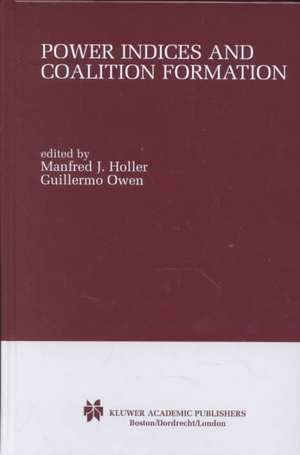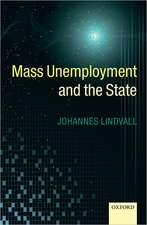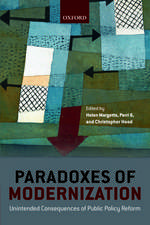Power Indices and Coalition Formation
Editat de M.J. Holler, Guillermo Owenen Limba Engleză Hardback – 30 iul 2001
New results will be discussed in this volume. Its contributions put flesh and blood on the theoretical innovations and their applications that led to a growing interest in power indices and coalition formation.
| Toate formatele și edițiile | Preț | Express |
|---|---|---|
| Paperback (1) | 949.23 lei 6-8 săpt. | |
| Springer Us – dec 2010 | 949.23 lei 6-8 săpt. | |
| Hardback (1) | 955.40 lei 6-8 săpt. | |
| Springer Us – 30 iul 2001 | 955.40 lei 6-8 săpt. |
Preț: 955.40 lei
Preț vechi: 1165.11 lei
-18% Nou
Puncte Express: 1433
Preț estimativ în valută:
182.82€ • 188.60$ • 152.56£
182.82€ • 188.60$ • 152.56£
Carte tipărită la comandă
Livrare economică 26 martie-09 aprilie
Preluare comenzi: 021 569.72.76
Specificații
ISBN-13: 9780792373599
ISBN-10: 0792373596
Pagini: 396
Ilustrații: VI, 386 p.
Dimensiuni: 155 x 235 x 27 mm
Greutate: 0.73 kg
Ediția:2001
Editura: Springer Us
Colecția Springer
Locul publicării:New York, NY, United States
ISBN-10: 0792373596
Pagini: 396
Ilustrații: VI, 386 p.
Dimensiuni: 155 x 235 x 27 mm
Greutate: 0.73 kg
Ediția:2001
Editura: Springer Us
Colecția Springer
Locul publicării:New York, NY, United States
Public țintă
ResearchDescriere
In recent years, publications on power indices and coalition formation have multiplied. Obviously, the application of these concepts to political institutions, more specifically, to the analysis of the European Union and, as it seems, the election of the President of the United States is getting more and more popular. There are, however, also new theoretical instruments and perspectives that support these applications: First of all, the probabilistic model of coalition formation has to be mentioned which is made operational by the multilinear extension of the characteristic function form of coalition games. This instrument triggered off a reinterpretation of existing power indices and the formulation of new indices. This development is accompanied by an intensive discussion of the concept of power in general - what do we measure when we apply power measures? - and the properties that an adequate measure of power has to satisfy. Various concepts of monotonicity were proposed as litmus test. The discussion shows that the underlying theories of coalition formation play a decisive role.
New results will be discussed in this volume. Its contributions put flesh and blood on the theoretical innovations and their applications that led to a growing interest in power indices and coalition formation.
New results will be discussed in this volume. Its contributions put flesh and blood on the theoretical innovations and their applications that led to a growing interest in power indices and coalition formation.
Cuprins
Why Power Indices and Coalition Formation? M.J. Holler, G. Owen. 1. Refinements and Extensions of Power Indices. An Average Value Function for Cooperative Games; V. Akimov, W. Kerby. Extended Probabilistic Characterization of Power Indices; M. Brueckner. Axiomatics of Level Structure Values; F. Chantreuil. Values for Multialternative Games and Multilinear Extensions; R. Ono. Models and Reality: The Curious Case of the Absent Abstention; D.S. Felsenthal, M. Machover. Global Monotonicity of Values of Cooperative Games: An Argument Supporting the Explanatory Power of Shapley's Approach; R. Levínsky, P. Silárszky. On the Probabilistic Relationship Between the Public Good Index and the Normalized Banzhaf Index; M. Widgrén. A Note on the Holler-Packel Axiomatization of the Public Good Index (PGI); S. Napel. 2. Coalition Formation and Values. Power, Cooperation Indices and Coalition Structures; R. Amer, F. Carreras. Equal Treatment for Both Sides of Assignment Games in the Modified Least Core; P. Sudhölter. On Small Coalitions, Hierarchic Decision Making and Collective Competence; S. Berg. An Axiomatic Approach to Probabilistic Efficient Values for Cooperative Games; T. Radzik, Th. Driessen. Set Games; H. Aarts, et al. 3. Power in European Decision Making. Voting Power in a Sequence of Cooperative Games: The Case of EU Procedures; A. Laruelle, M. Widgrén. Decisiveness and Inclusiveness: Two Aspects of the Intergovernmental Choice of European Voting Rules; T. König, T. Bräuninger. Calculus of Consent in the EU Council of Ministers; H. Nurmi, et al. Coalition Formation and Voting in the Council of the European Union; M.O. Hosli. Voting Power in the European Central Bank; M. Brueckner.4. Power and Representation. Power Indices and the Design of Electoral/Constitutional Systems; R.J. Johnston. Implementing Democracy in Indirect Voting Processes: the Knesset Case; A. Laruelle. Index of Power for Cabinet; J.W. Mercik.
















